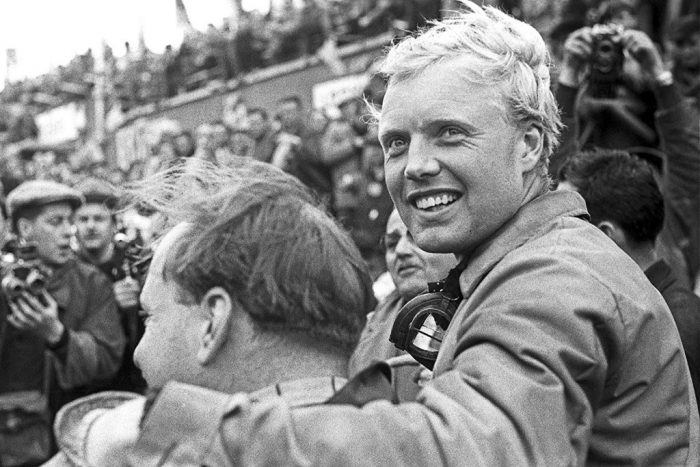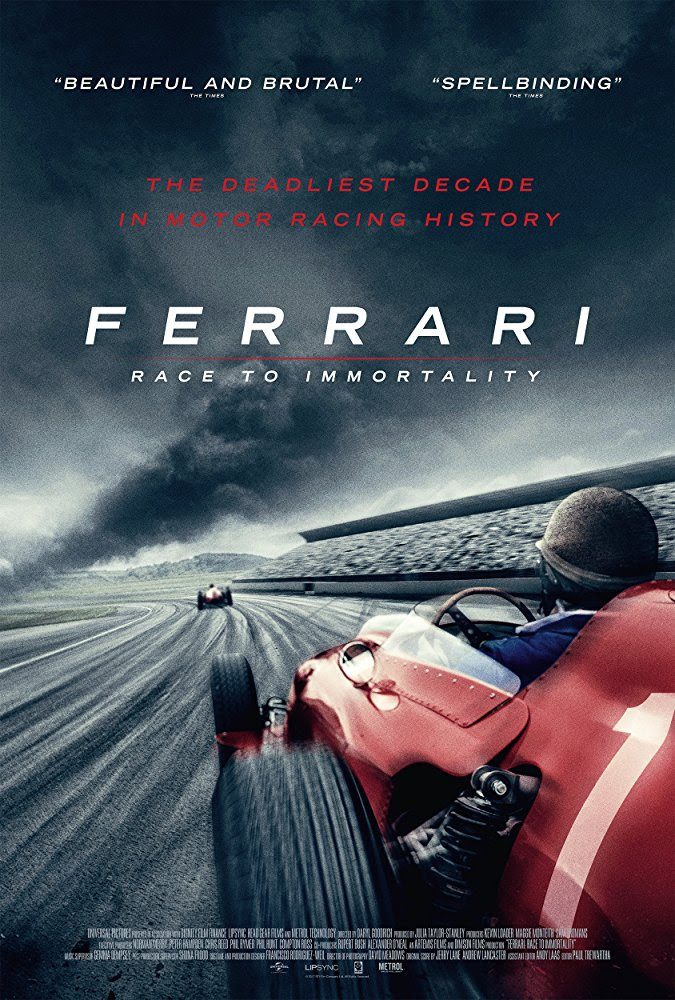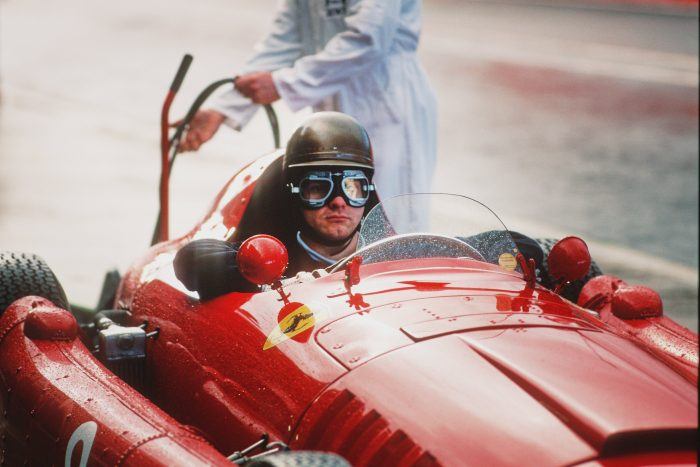I have a theory that 99.9 percent of all car movies are terrible; barely watchable dreck that only offers brief glimpses of something cool and car-related, let alone offering true insight into the automotive world, let alone the human condition. This movie, however, Ferrari: Race to Immortality, is most definitely not one of those movies.
Studios & Garages
I should preface this with the fact that I worked in movie and TV production for decades. Seeing a movie with me (and any of my production team friends) is usually bogged down with post-viewing conversations about bad edits, bad directing decisions, commenting on lens choices and stuff like that before we get into the meat of the movie; i.e. the plot, the narrative, and the acting.
On top of that, there’s the gearhead side of me that has to be seen to. We, the gearhead movie-goers, all seem to have this nagging trait. We know cars intimately, and when something is technically wrong, it grates on us, and usually to a disproportional level. Tire squeals on gravel, seven upshifts in a five-speed car, driving off a cliff = explosion. It bugs us, I get it. Shoot, it bugs me all the time.
That said, I can unequivocally say that Ferrari: Race to Immortality is one of the best documentaries I’ve seen. Not racing documentaries, mind you; one of the best documentaries period.
At The Limit & Over The Edge
Essentially, Ferrari: Race to Immortality is a film version of Mon Ami Mate by author Chris Nixon. The movie revolves around the lives, racing and otherwise, of Mike Hawthorn and Peter Collins, two British racers from the 1950s. The 1950s were a particularly violent and reckless time for auto racing. Spread across the decade, top line drivers from all disciplines (Grand Prix, Indy, sports cars etc.) were dying at the rate of one every other week.
Around 28 per year, every year, for a decade.
The movie starts with the infamous Le Mans crash of 1955 that saw the Mercedes 300 SLR of Pierre Levegh catapult into the main grandstands, on fire, and take more than 80 people with him. That, more or less, sets the tone for the entire movie to follow. “I keep death in my hip pocket,” Enzo Ferrari once said, and this movie shows you the meaning of those words.
Human Conditions
Hawthorn was involved in that crash (some alleged was the cause of the crash) but won Le Mans that year. Indeed, he became the first Englishman to win the World Driving Championship. In a lot of ways, Hawthorn was right out of central casting: tall, good looking, butter-colored wavy hair, always raced wearing a bow tie, just the sort of thing the British fans and press would eat up.
Peter Collins, on the other hand, was more ruggedly featured, and say what you want about the two of them, looks-wise, but they sure had a string of girlfriends. The movie just doesn’t point this out, it actually has interviews with the various ladies involved with these racers.
All of the interviews and sound bites, with fellow racers, the aforementioned lady-friends, journalists, Enzo himself, and historians are all delivered via voice over and it works fantastically. No talking heads to distract with boring visuals. And what is said is just dynamite stuff. Not just from a gearhead perspective, but, very importantly, from a human perspective.
Hawthorn was interviewed extensively back in the day, and his stuff is rather “right off the rack” in what is said, and some of it I had heard before. Collins is friendly, joking; seems like a real good bloke. Enzo is Enzo: political, cunning, measured, Machiavellian. The real meat here is what is said by the girlfriends and the historians. There’s none of this “I’m just the steady backing on the home-front” BS that we have sadly come to expect.
At one point, Louise King, Collins’ wife said, in response to a question about the danger involved, “One time, Peter did try to bring it up, and I stopped him. ‘Don’t’, I said, ‘Just don’t.’ And we never spoke of it again.”
Sweet Jesus.
Visual Treasures
All the interviews come across like a rich vein of gold willingly mined. There are extensive interviews with Alfonso de Portago, the brilliantly talented yet doomed Spaniard. Until last night, I had never heard him speak. Other drivers, writers, girlfriends, and such all chime in, but none of the interviews are fluff, none of it is filler. Every word adds to and enriches what is being shown on screen.
And oh what they show on screen.
The visual end of things is nearly flawless. All of the archive materials used are flat out fantastic. Yes, I had seen much of this footage before, but a remarkable amount of it was unknown to me. All of the older footage was re-graded and level-matched, most of the grain and such taken out. None of it was colorized.
There is tons of footage from back in the day of these guys hanging out, waiting to drive, smoking cigarettes, goofing off at hotel pools, getting out of cars covered in grease and dirt and grime, levering themselves out looking as physically spent as a human can, but beaming; beaming bright satisfied smiles.
Time Machines
And mixed in with all this are drop-dead-gorgeous shots of various vintage Ferraris (246s, 555 Squalos and such) shot in the present day. It would seem the producers got ahold of some far too lucky rich guys that own these old beasts, dressed them up, and turned them lose on old race tracks to get more footage. And the new stuff is seamlessly integrated with the old stuff. And I do mean seamlessly.
A lot of the work I did was as an editor, and more than once I was caught off guard, only noticing two or three cuts later that they had dropped in modern footage with the old. The last time I failed to notice editing like that was watching Schindler’s List.
Yeah, this movie is that well done.
Ideal Balance
Ferrari: Race to Immortality seemingly covers it all, but never gets bogged down in technical details or soap opera subplots, neither becoming too maudlin over the constant drum-beat of fatalities nor exulting in the sacrifice. The rivalry between Eugenio Castellotti and Luigi Musso. Collins’ ultimate sporting gesture with Juan Manuel Fangio. Enzo’s belief that more pressure equaled more wins. Meditations on the nature of danger and mortality by Stirling Moss. The sublime joy of sliding your race car just so through and out an entire turn.
But more than anything else, what is made abundantly clear, moment after moment, frame after frame, is that everyone involved loved this life.
Tony Borroz has spent his entire life racing antique and sports cars. He is the author of Bricks & Bones: The Endearing Legacy and Nitty-Gritty Phenomenon of The Indy 500, available in paperback or Kindle format. His forthcoming new book The Future In Front of Me, The Past Behind Me will be available soon. Follow his work on Twitter: @TonyBorroz
Ferrari: Race to Immortality
Synopsis: The 1950s saw the rise of Scuderia Ferrari in the Formula One World Championship in the deadliest decade in motor racing history. Ferrari: Race to Immortality tells the story of the loves and losses, triumphs and tragedy of Ferrari‘s most decorated drivers in an era where it was la dolce vita during the week and a coin toss of whether they lived or died on the weekend.
Director: Daryl Goodrich
Starring: Peter Collins, Mike Hawthorn, Enzo Ferrari
Run Time: 1hr 31m
Availability: Via Amazon Prime, official trailer here.
from Automoblog.net https://ift.tt/2LTFWPK



No comments:
Post a Comment